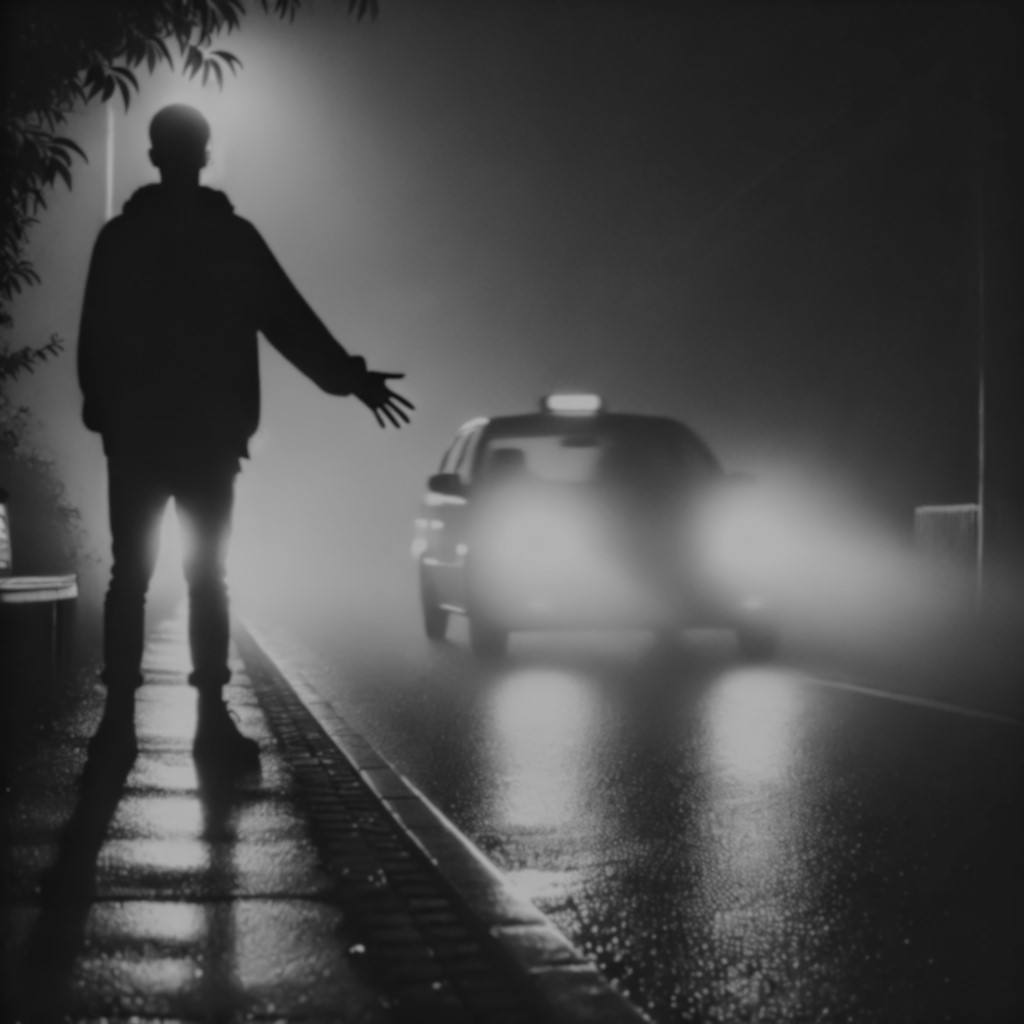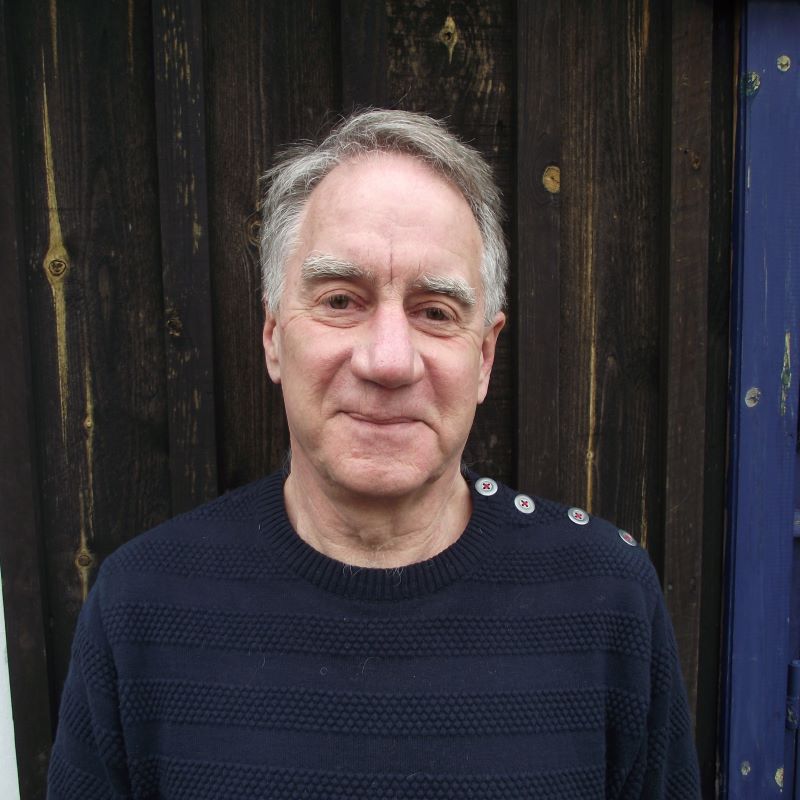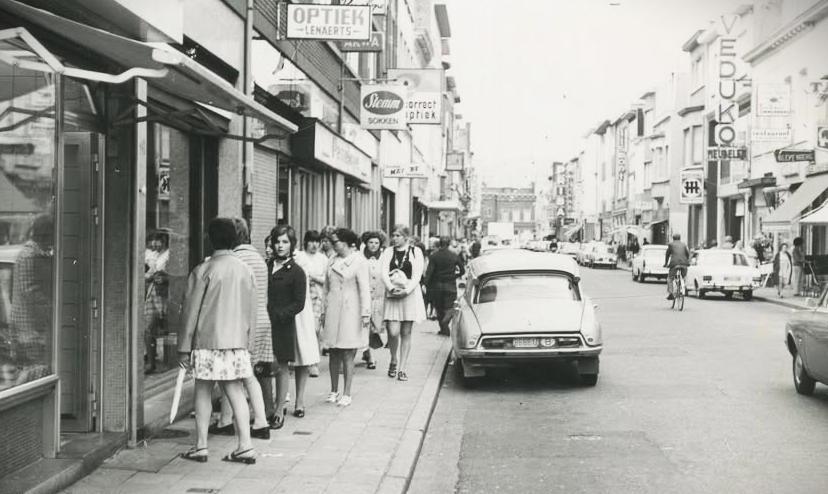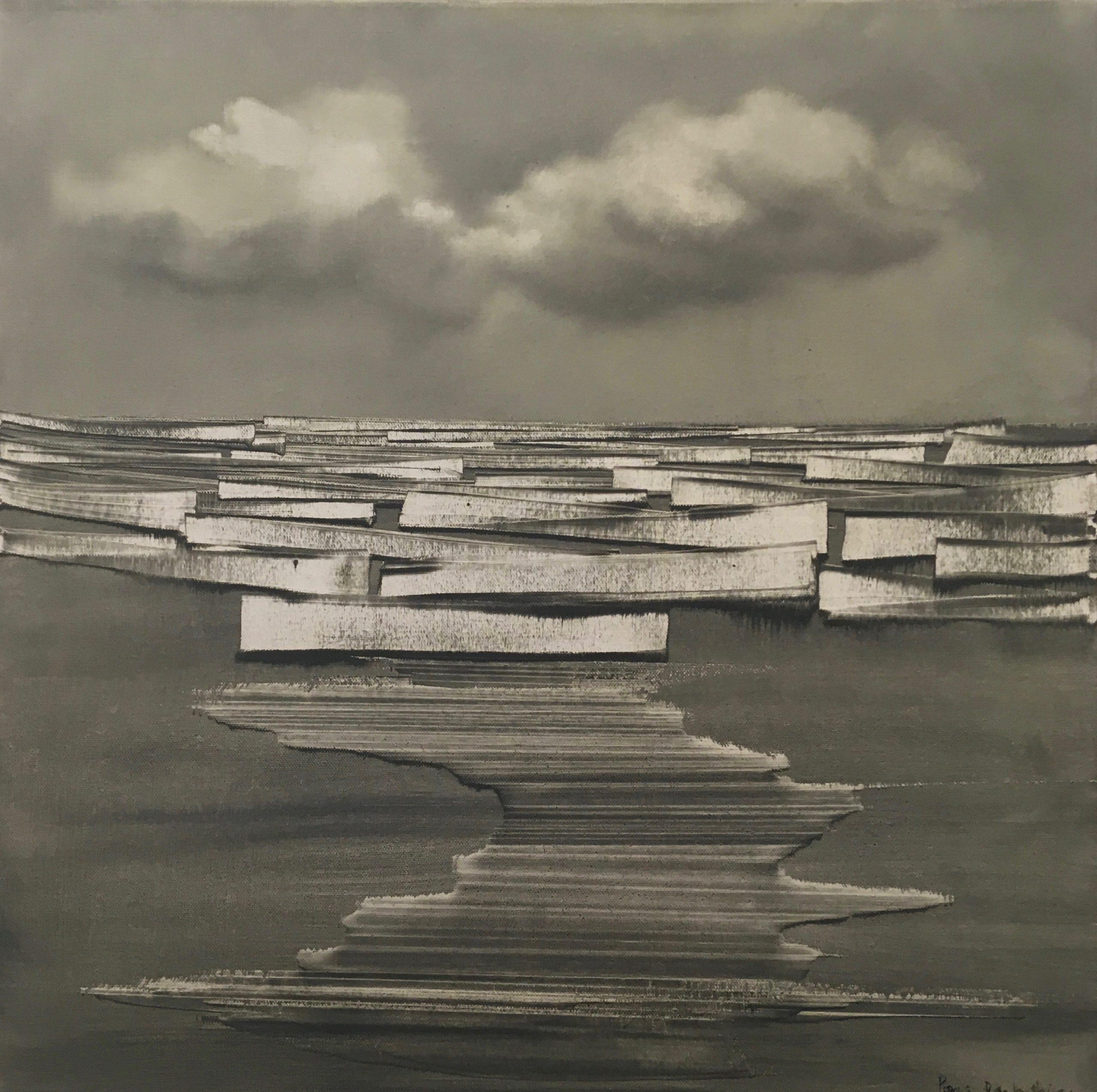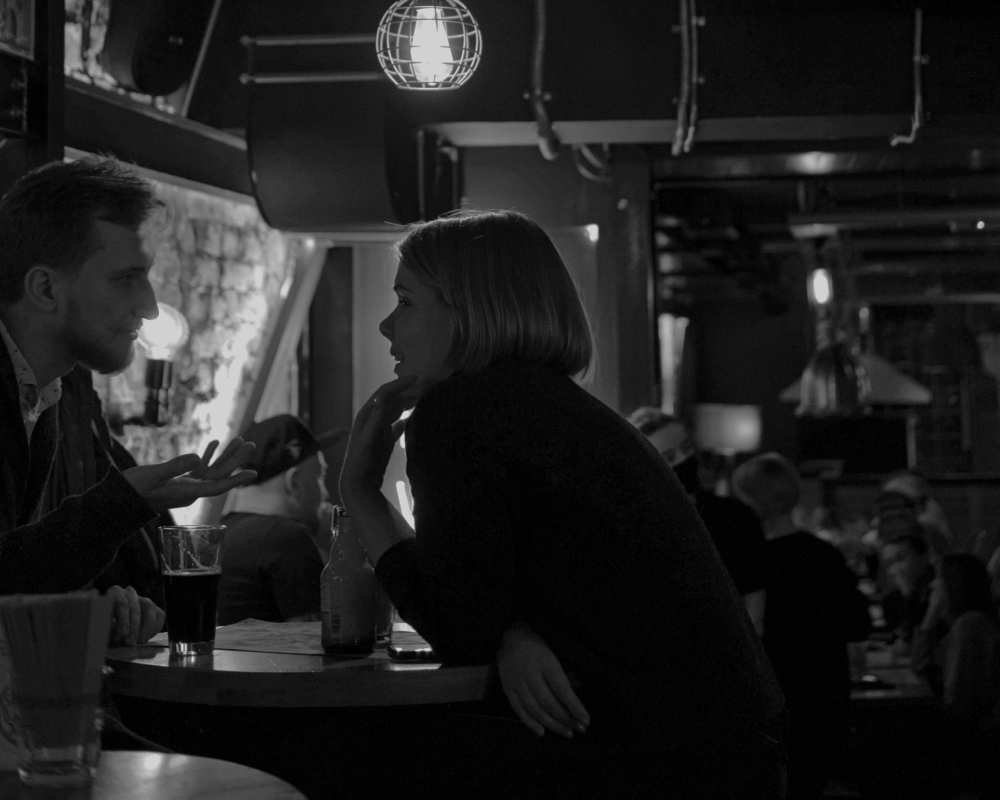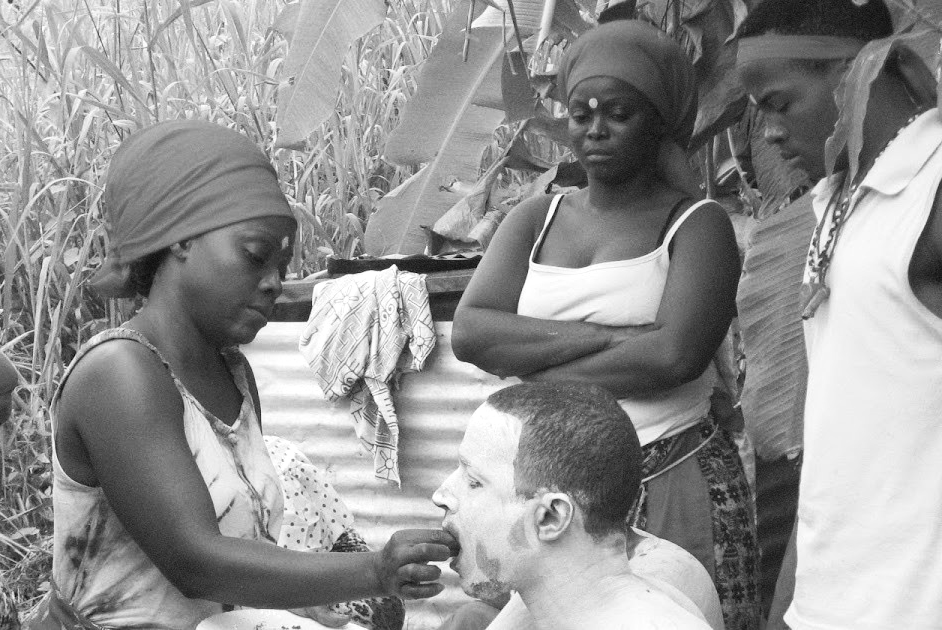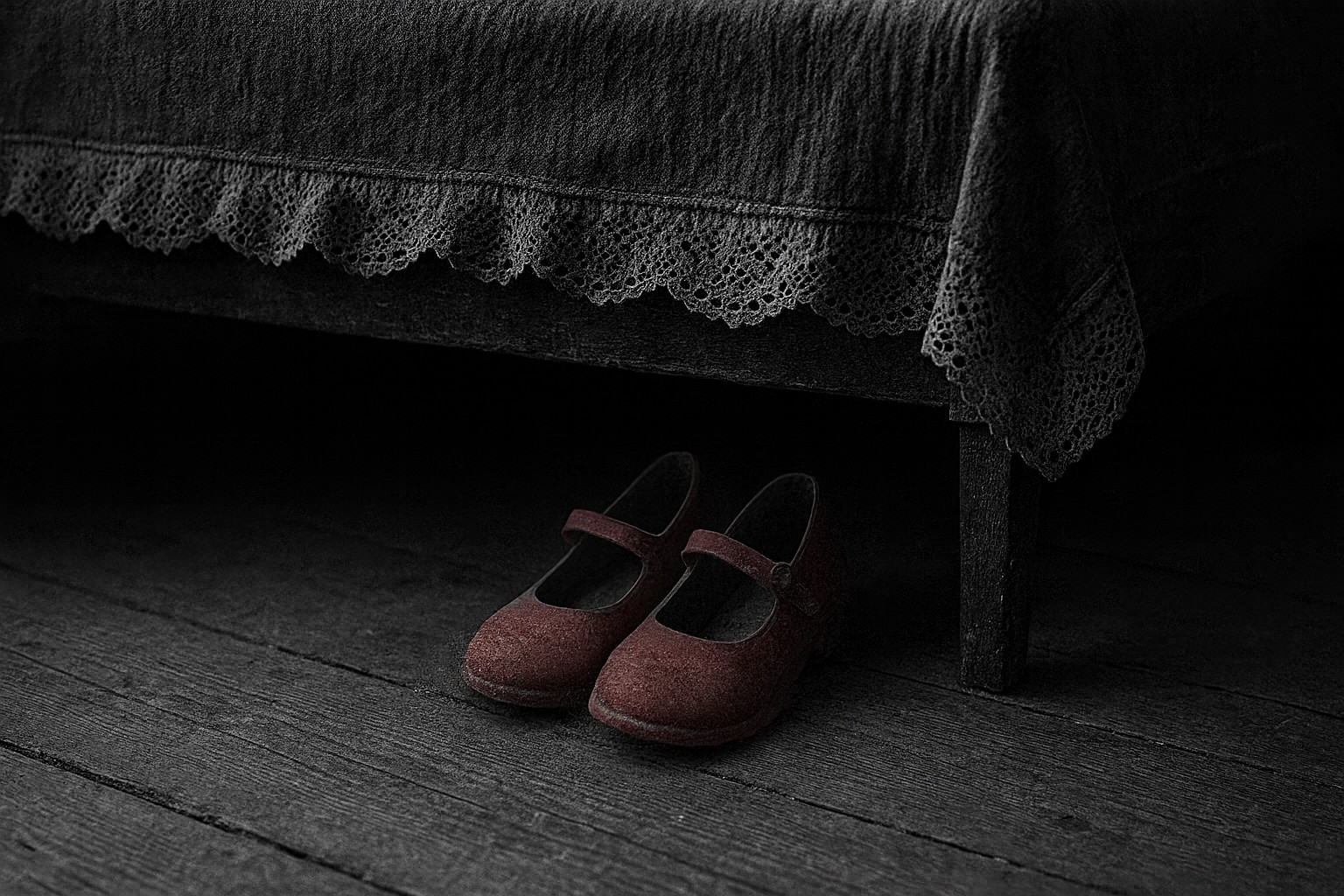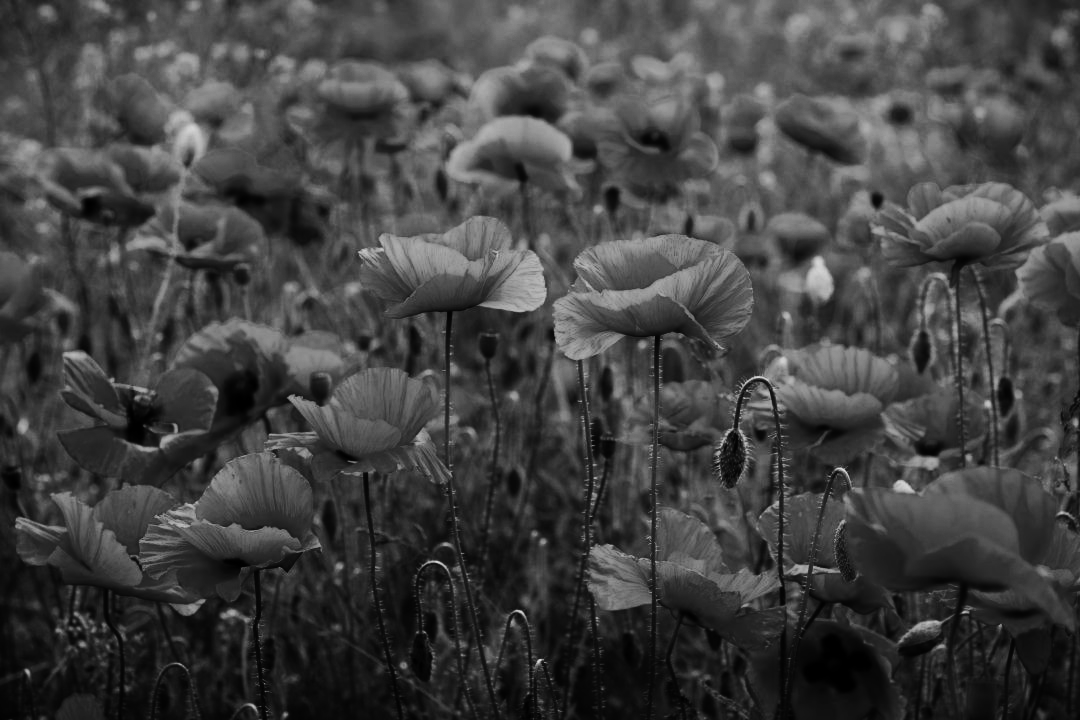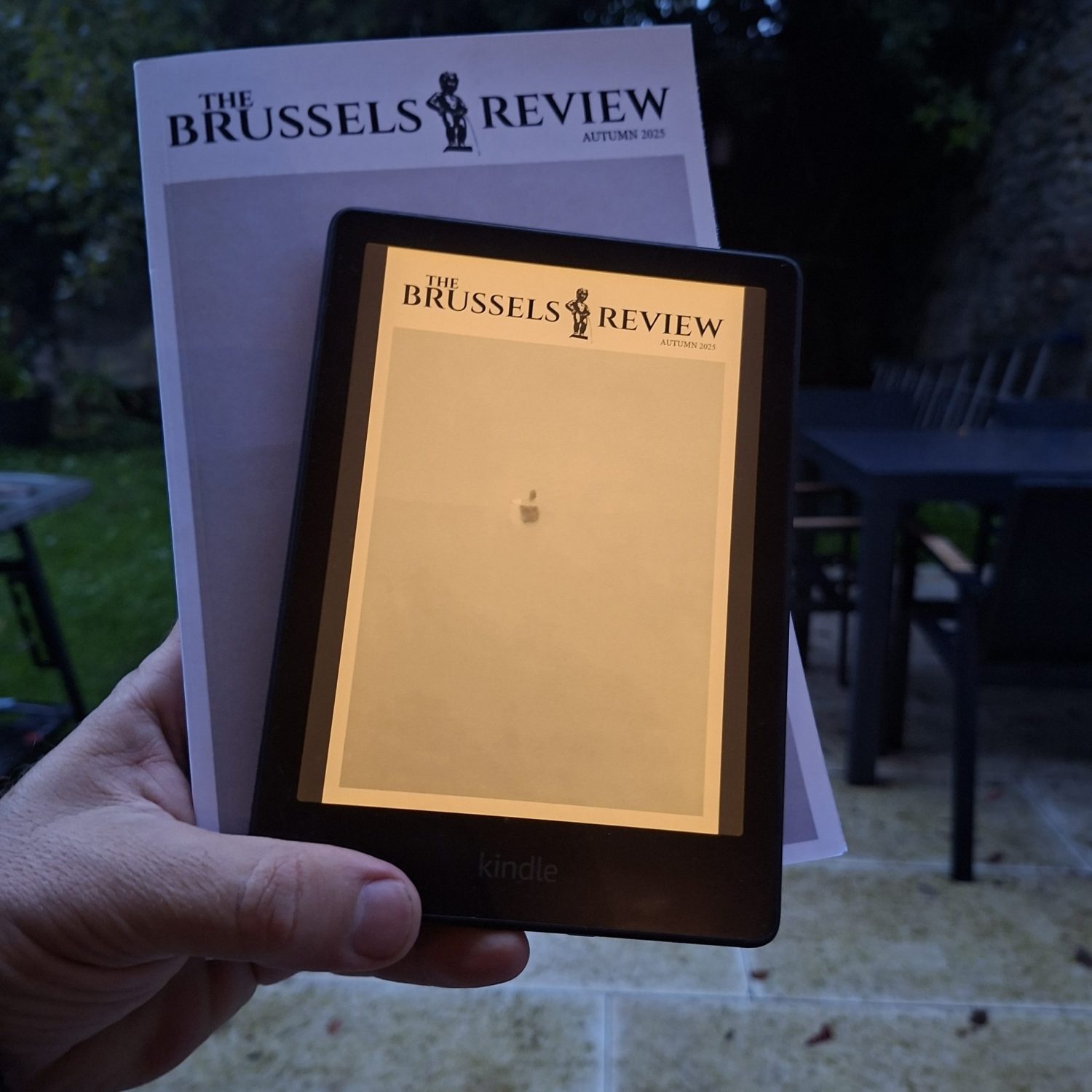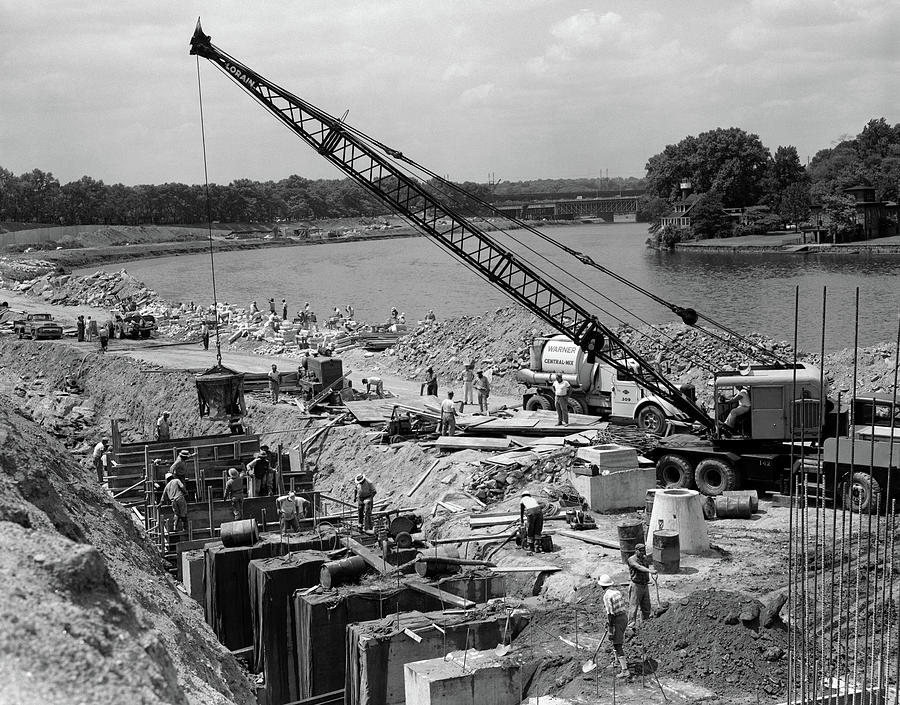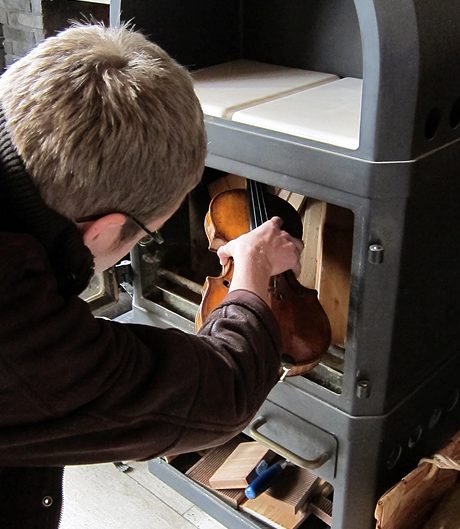Wanderlust
“If you want to move swiftly, then go alone. If you want to go far, then walk together,” the proverb tells us, but true travellers only rarely have time to make such choices.
Restless by nature, people and peoples have always been on the move, sometimes willingly, sometimes less so. A person might jump off of a sinking ship only to find himself in a lifeboat with unsavoury characters who would change his life forever, or a whole nation might wander off on a whim and still be wondering where they were and how they got there a thousand years later.
As the Second World War redefined all pre-existing norms, two eighteen-year-old Americans fled their childhood homes. Both were determined never to return, and like so many others of their generation, the army was the way out.
Steve was the son of poor German immigrants from Transylvania and many of his relatives had outspoken Nazi sympathies. Gigi’s parents were Anglophile, aristocratic immigrants from Canada with liberal conservative convictions. They both felt suffocated by the weight of inherited mores and prejudices that they never told the other about and both thought the other could be their salvation.
Long after their marriage and divorce and years after Steve had left the CIA, I, their eighteen-year-old son followed in their footsteps, leaving not only home but the very country of my birth behind me. For my parents, a world war and the ensuing GI bill had guaranteed a prosperous future. Another war in Vietnam threatened to extinguish mine. In either case, eighteen was an age to be reckoned with and a hastily purchased one-way transatlantic ticket was as far ahead as a teenage mind could think.
Fifty more years were to pass before I asked the pivotal questions: Who were these people and where did they all come from?
The Spirits of the Road
Settling into the passenger’s seats of a series of short lifts on a desolate Belgian byway, I heard the words,” hitchhiker”,” murdered” and “brutal” distantly as I tried to keep the conversations going, tried to stay awake. I couldn’t even always keep track of the language being spoken. After having heard the story in languages I knew though, I could fill in the blanks. Even the cities had three names on road signs.
“What’s in a name?” I mused “or a place or time?” The Spirits of the road knew, but they weren’t talking.
Running on late night caffeine overdrive, the Spirits and I were gliding together in a grand unification dimension of asphalt, rubber and talkative strangers in the company of other hitchhikers, dead and alive. Watching the droplets of mist coalesce into rivulets dissecting the darkness of the windshield, I wondered how I could be sure that I was here at all and not somewhere else.
I saw the faces of the drivers in the speedometer’s greenish glow. I nodded to show my interest when they said, “Hitchhiker” and “last week”, but I couldn’t relate. They might have made sense in the light of day, but late at night, they broke some arcane symmetry. The implicit contract between driver and hiker, with each their role to play and service to provide had been turned inside out. The drivers were there to keep me moving and I was there to entertain in return, an in-person, late night talk show host, telling stories to keep them awake or listening as they told things that could only be told to a stranger in the night who would soon disappear forever. This time, they were putting me in the main role of a story that was theirs, not mine.
The car’s lights went on when they opened the door to let me in and they went on again when they let me out. “Kchonck” said the lightly slammed door behind me, as I resumed my rightful place on wet asphalt in dark, piny woods, too tired to feel fear. I had been running on nothing but coffee since hitting the road before daybreak and I had a long way yet to go.
I hovered motionless in the foreign night as the drivers and their cars changed around me. The nurturing embrace of the Spirits, as real as the gentle rain, left no room for fears or worries. I did wonder absently what had made the drivers stop to give me the news, only to send me back into the night again. It was none of my business, but it did seem odd that not one of the seven offered to take me to a safer place.
Alone in the dark woods between rides, it was easy to put my faith in the Spirits of the Road and my thumb to magically bring me to a better place. It worked, of course. What else?
Hiding in Plain Sight
I had just turned eighteen. My mind was filled with Vietnam and the draft, and my father had some thoughts to share on the subject. “Last time I was in Washington,” He said as he tried to roll a cigarette with my tobacco, “I met a friend who was still in The Company watching a Vietnam demonstration. He said that we should have been there along with those kids. He was right.”
He gave up on the roll-up, lighting a cigar to fill the pause as he refilled our drinks. That was what he had to say about my sudden appearance in Europe. Europe was very far away in those days. Back when he had been a spy, our family had lived in Greece for a while. I had been very young then though and apart from our family I had never met anyone who had been outside of America.
I had shouted “Hell no, we won’t go” along with everybody else at the pacifist demonstrations, without giving the details much thought. The bumper stickers saying, “America, love it or leave it”, had sounded like good advice, but the forwarded letter telling me to report for duty at the American military base in Bremerhaven indicated that it wasn’t all that simple. A single sheet of paper had done away with the illusion of invisibility that had kept me afloat as I bummed aimlessly about on Europe’s byways.
A steam locomotive spewing black coal smoke pulled me through the winter landscape to the port from whence my father’s parents had embarked for the promised land fifty years earlier, ancient history of which I was then unaware. My uncomprehending feet squeaked on the frozen snow. Reluctantly but dutifully, I approached the base, only to find the gate closed and locked. A solitary marine stood guard, looking as though he would rather be anywhere else. After reading my notification several times he shook his head and pointed at the date.
“They must of hit the wrong key.” He said. “that’s the right date, but this is Sunday. The base is closed today.”
“OH”, I said. “Would you tell them that I was here?” I walked away, leaving him scratching his head as he re-read the letter. It didn’t occur to me to leave a forwarding address and he was too dumbfounded to ask for one. I had no address anyway, nor any place to go. I didn’t know anybody in Germany at the time and had no place to spend the night. It was very cold. When it had still been summer, I had met some people in Denmark, so I used my last money on a train ticket north, hoping to find someone to put me up for a night or two when I got there.
Journeys of the Heart
The lights in most of the windows in Namur had already been turned off for the night. Even the streetlights only shone dimly through the falling slush. Christmas was only a few days away, but there was no sign of it to be seen in the grey walled city. Our hands were deep in our pockets, keeping our thumbs warm and ready to flag a ride if a car happened to pass by, but there were no cars.
The mighty Belgian highways were only just being born. By day, scooters, sports cars and double trailer lorries zoomed by only inches from café tables on narrow sidewalks. People lived here, but for transients like us this town could have been any other. In such an ancient, fractal network of streets and byways, any ride could only be an approximation, casting the hitchhiker a few degrees left or right of where they wanted to go. I didn’t even know the name of the dark, sluggish river upon which the city lay, and I still don’t.
My feet stuck to the soles of my sneakers through the holes in my socks. Slush splashed as I danced lightly, restlessly on the hard-hearted sidewalk. In a strange wet town without shelter, we would finally have to walk on through the night, but we decided to wait just a bit longer. Without the flow of daytime traffic, there was no way to tell which of the city’s nondescript, labyrinthine roads was the main thoroughfare that could catapult us off in the right direction. The night was pregnant with phantom possibilities, so we hummed and danced in the slush, waiting without fear, hopes or expectations.
The only people on the street were a man and a little girl, hunching against the wind, holding hands and squinting against the wind—driven slush. The little girl was talking animatedly and the man listened intently. They had just walked past us, when the girl tugged at her father’s sleeve and he nodded thoughtfully.
They doubled bac towards us and he said,” If you would like, you could stay with us tonight.” His daughter beamed at us, waving her welcome from a few feet away.
They had been on their way home from folk dancing when she had stopped him to say, “If s someone had helped you when you were young then you wouldn’t be so sick today.”
There wasn’t much food in the house, but bread and mayonnaise came out and we had our first meal of the day. He was single, raising five children on a schoolteacher’s wages. An elephant’s tooth in the windowsill was what he had to show for his years of teaching in the Belgian Congo.
In the morning, the river looked grand in the sunlight and we thanked them as well as we could. I never learned their names.
An early morning truck driver took us to Lille and from there we made it to Paris in time to keep our Christmas dinner appointment.
In my bag, I had books that would earn an extension of my student visa. In time, they would also pave the way for work permission and even student grants. Until then, life was a matter of surviving without money on the streets of another foreign city. The books were also a comforting reminder of the predictable worlds of science, so unlike the world I lived in. If you cast a pair of dice a thousand times, then statistics can tell you everything there is to know, but science has nothing to tell about the fate of the hitchhiker, always governed by the flip of a single coin. What had led us to that particular street corner and why had two people happened by just then? Flip a coin or two and see what comes up.
The Game of Nations
Denmark was not always such a small country. Time was, when England, Norway and Northern Germany were all under its dominion, as were much of Sweden and the Baltic coasts. Even before it was Denmark, Angles, Saxons, Jutes, Teutons, Cimbri, Hadbards, Lombard and countless others had called its foggy sandbanks home, before they went a-travelling in each their season.
In ages of good weather, cattle thrived and people multiplied. When crops failed or Attila’s hordes ravaged, they would wander off, Burgundy to Gaul, Lombards to Italy, Vandals to Africa. Some went a ‘Viking to Westmark, far beyond Greenland and others to Miklagaard on the Black Sea.
My great grandfather’s people wandered from Denmark to England as Angles and Saxons. Later, they met other, distant cousins of Danish heritage, the Normans, on the fields of war. Those were my great grandmother’s ancestors. They met and married in Nova Scotia, before emigrating to the land south of the border, where my mother was born.
Other Saxons expanded from Southern Jutland to Lower Saxony. By the time the Pied Piper arrived in the town of Hamlin to recruit workers for the mines of Transylvania, few recalled the old seafaring days or the rolling landscapes of the Danish islands and peninsula that had been so generous in good times and so miserly in the bad. Many sojourned in Transylvania for their millennium, working and getting by through plague and strife in the borderlands between two great empires. When the Austro-Hungarian empire and the Ottoman empire collapsed in their turn, my father’s parents crossed a continent and an ocean, hoping for better times. In Rumania, her family had been as rich as his had been poor, but in Rhode Island, they were the only eligible boy and girl from the hamlet of Martinsdorf, so it was their duty to get married. And so, they did.
Standing before the locked gate in Bremerhaven, I never imagined that my grandparents had stood there in their time before ever meeting, nor did I know that my next destination was the very land from whence all of my forbears had departed those thousand years ago. Eighteen-year-olds don’t operate in that sort of time frame, and no wonder. By now, the battlefields of my parents’ youth are all but forgotten in the wake of later events. Even the war in Vietnam, which seemed so eternal in its day signifies but little to later generations. If a mere half a century can so easily be lost by the wayside, who can be expected to keep track of twenty times that span?
Mire
I had ordered a beer and two sandwiches at the roadside café, but the waitress came with a sandwich and two glasses of wine. My French was less than fluent.
Driving on towards Nancy, a warning sign that I could only partly decipher piqued my curiosity. I turned off onto a muddy clay road, as slippery as wet soap. The motorcycle slid sideways in slow motion and I got off to take a look around the forest of young, self-sowed trees, so rarely seen in Europe. Slipping and sliding, my footsteps hesitated, trying to restrain my rash curiosity, and a few steps told me why. There were ditches. Between the ditches were remnants of barbed wire and holes that must once have been bomb craters. In the ancient, fading trenches, I saw canteens, boots, cloth remnants and there were bones.
For once, I wanted no souvenirs. Looking down, I saw a corroded, but as yet undetonated gas bomb next to my foot, and I decided to leave the place. Chill, wraith fingers tugged from the mire, cursing my intrusion but begging not to be abandoned again, not to be forgotten. Leaves by the roadside gave traction and the motorcycle returned to asphalt.
Near Strasbourg I had a hearty meal and the beer I had wanted earlier. The waitress spoke English. Her grandmother had been a nurse in The Great War a half a century earlier, but she was more interested in telling me about an upcoming motoball tournament, soccer played on speedway bikes. The next day I was in Bavaria, with no sign that there had ever been trench warfare or even a border.
The Emigrant Immigrant
There was no welcoming party at the station in Copenhagen when I arrived. A thousand years is a long time to be away from home, and it is no wonder that no one recognized me. I have surely changed since the days when I rambled to Transylvania looking for better times after those terrible battles with Charlemagne’s invading hordes. Even as I stood on the beach at Hastings to defend the land that I had stolen from the Scots and Picts, I had been out of touch with family relations for such a long time that I didn’t recognize my own once Scandinavian cousins from Normandy as they waded from their boats with weapons in hand, and it wasn’t only me. It would take another eight hundred years before the wedding of my great grandparents laid that strife to rest.
Things had also changed here since my departure. New peoples had arrived, settled and put their own by now ancient roots into the shifting sands. The same Danes who came as marauders to my new, Anglo-Saxon homeland also went east, bringing Levantine wives, concubines and slaves back with them. They were joined later by Slavic slaves, who also settled down in time and forgot all about how they had gotten here. Huguenots and Jews sought refuge here, beyond European pogroms and inquisitions, German immigrants were recruited to grow potatoes, Dutch to build castles and make cheese and Flemish artisans to build ships and dikes. Older than all of them, I came as the latest of newcomers. Once an uninvited guest, I have now lived here longer than any of my native – born neighbours and remember times and “typically Danish” traditions that none of them have known and cannot imagine.
As an immigrant, I will always be a stranger, the new kid on the block, but my children are native born. With that pedigree, they are older than I, in a land that is changing even as I tell the tale. It’s been a hell of a trip, but perhaps we can all wipe the sweat from our brows, hunker down a bit and relax, at least for a generation or so.
Housewarming
In Nigeria, a friend’s research assistant had informed her: “People here like to live in their own houses”. It took her the better part of a year to understand even that apparently simple statement.
Something similar dawned on me when I bought a house. I thought it mine, even though the previous owner had grown up there and still lived just down the road. We installed an upstairs bathroom in a room so tiny that the toilet fit only at an angle. It had been his childhood room. There was a small sink in the pantry but none in the kitchen. The extra yards of piping had seemed too extravagant to his hard-working parents. A fake, painted baseboard had saved the builders two feet of profiled wood.
“Your new house isn’t good,” his parents had said when he left this, his childhood home to start a new, married life. “Too much light.” They trusted only the protective darkness of home and church. They were dead now and he had sold their house to me. Dead they were and gone I assumed. I had never bought a used house before.
Naively, I supposed that lock and deed made the house mine. A small living room arose when we tore the wall down between two smaller, earlier living rooms, one for everyday and one for baptisms and funerals. Coats of paint turned dark walls and olive ceilings white, and sunlight came in after vines were trimmed.
Painting done, I sat in sunlight with friends around water and incense, watched by baleful, spectral eyes. The dead sat against the walls in straight-backed chairs, stunned to astonishment. Dead eyes stiffened, melted as we blessed doors, windows and corners with smoke and water. Bewildered, they kept their peace, neither approving nor departing.
No ghosts here. Only the unfinished business of lives unready to tell sticks and stones, glass and mortar from life and death.
Gone they might seem, but each new hole dug in the garden revealed bedsprings, bones and concrete foundations… and two feet of baseboard were still just paint on plaster.
Castaways
We all like to believe that we come from a place, a place to which we belong and which belongs to us.
Places change with time though, as do the peoples who borrow a given landscape, each in their turn. The stories that bind us together signify more than any bit of turf ever can; stories that tell of primordial roots that were there before anybody else came, or founding myths of how we all got there. Either version explains why we now can call the place our own.
According to a fireplace tale in my childhood homes, an ancient ancestor once suffered shipwreck in the distant past. By my time, nobody knew or apparently cared which ancestral line he belonged to. Great grandmothers? Great grandfathers? Before or after the battle of Hastings?
Driven to desperation in a cramped lifeboat, the survivors cast lots as to who was to die, that the others might live. Our forefather lost the bet, thereby winning honour with a smile on his face. If you have ever seen Errol Flynn in the movie, “Dawn Patrol”, smiling gallantly and saluting the German fighter pilot who had just shot his airplane down, then you know just what kind of a smile it must have been. The dagger was already raised above our predecessor’s breast to end his days, when a sail was spied upon the horizon. They were all rescued and he lived on to beget children, grandchildren and so on down the line.
Even at a young age, I was savvy enough to realize that there was hardly a family in New England or Down East that didn’t have a story like that. Either they were all descended from the same, unfortunate sailor or they had borrowed the story to legitimize their venerable tenure as quasi-natives in a land of newcomers. When I had grown to be a cynical teenager, I rejected it as just another children’s bedtime story. Still later, as a young adult, I discovered that categorical cynicism is a luxury that only teenagers can afford. Things happen as happenstance will have it, after all. Some of the things that really happen in the course of a long life are quite as improbable as the fate of a castaway, saved by a sail at sunrise. It could have been me. It could have been you. It happens all the time.
My life on Zanzibar was as predictable as the weather. The skies were blue all day and the heavens clear at night, except for the hours from 2AM to 4AM when it rained daily, keeping the island verdant and lush. Even there though, there was room for fate to improvise as it saw fit. The coastal road leading into Zanzibar city was narrow. Traffic ran bumper to bumper at highway speeds with no sidewalks between the roadbed and the house facades. I was on such a stretch when a lorry swerved to avoid a head on collision, smashing into the abutting wall, scraping it and leaving a two inch deep, twenty-yard-long horizontal gash in the façade. What roll of the dice had placed me unscathed, precisely in the only two-foot-deep doorway facing the road? It was thirty yards to the next such doorway, so the odds of ordinary statistics were not on my side.
Years before that, on my way to Dar es Salaam, a military vehicle that had picked me up ran off the road for some reason. It hurtled over a small dike, casting me two feet up in the air as it shot through a rural marketplace with horn wailing, dogs barking and screaming women running for their lives. What angelic hand had let me fall on the cargo platform with only my feet dangling free instead of falling the extra four feet to the ground at fifty miles an hour?
I don’t think that anybody can live on the road for long without asking such questions. Living in that flow, it all makes such sense that mundane constraints of cause and effect must surrender to a realization that reality itself is an existential strip tease that can only be sensed intuitively a veil at a time.
Roots
In time, you get used to the new place. Later, your neighbors also get used to you, and as other foreigners arrive in a previously so homogenous land, people even learn to understand their own language with a foreign accent. A letter from Her Majesty, the very Queen of the nation commemorates your new citizenship, literally called birthright in the language of your new homeland.
Never too hot in the magnificently bright Nordic summer and only rarely far too cold in the inhumanly dark winter, the land of your ancestors becomes almost as familiar as the land of your childhood has become foreign.
Finally settled down with my own family in a house and country that have become my own, I became obsessed with roots, botanical and genealogical. A brief, febrile research period involving the internet and conversations with surviving family members in the Old Country brought our personal story back to 1066, 1072 and the eleventh century respectively. History books pushed it all back a fair piece farther, until I had gone full circle and let it lie.
The other roots had more staying power in an ephemeral way. At last count, I had planted thirty trees and thirty bushes on the quarter acre plot, where previously only a house had disturbed the monotony of virgin lawn. It takes less time to plant a tree than it did to book a one-way air ticket those many years ago, but all roots need time to establish themselves. Here, a thin layer of poor loam covers many feet of inhospitable, white sand deposited by the dust bowl catastrophe of the sixteenth century. Trees survive in suspended animation as their roots seek slowly downward, finally meeting the long-buried medieval ground surface. There, past the buried trash of our industrialized times, the roots can draw a sigh of relief as they wander about discarded stone axes and flint arrowheads. Ancient moraine clays send water and nutrients to the waiting trunks and branches that finally stretch their arms and raise their crowns to the heavens.
Ash, oak and thorn were the first planted, followed by all manner of garlanded arbors, many bearing nuts and fruits pleasing to the palate. I know them all by name and have become familiar with their faces and moods. They seem to know me as well, at least some of them, some of the time.
The garden has become a tranquil vale of fairy beauty, so different from what earlier occupants would have found appropriate. Someday, others will overtake stewardship of this patch of sandy soil and bulldozers will tear the trees up, roots and all. They will then have their own tales to tell of bygone days, and they will proclaim their own dreams of immortality, every brick or blossom they plant a reminder that not even eternity ever lasts for long these days.

